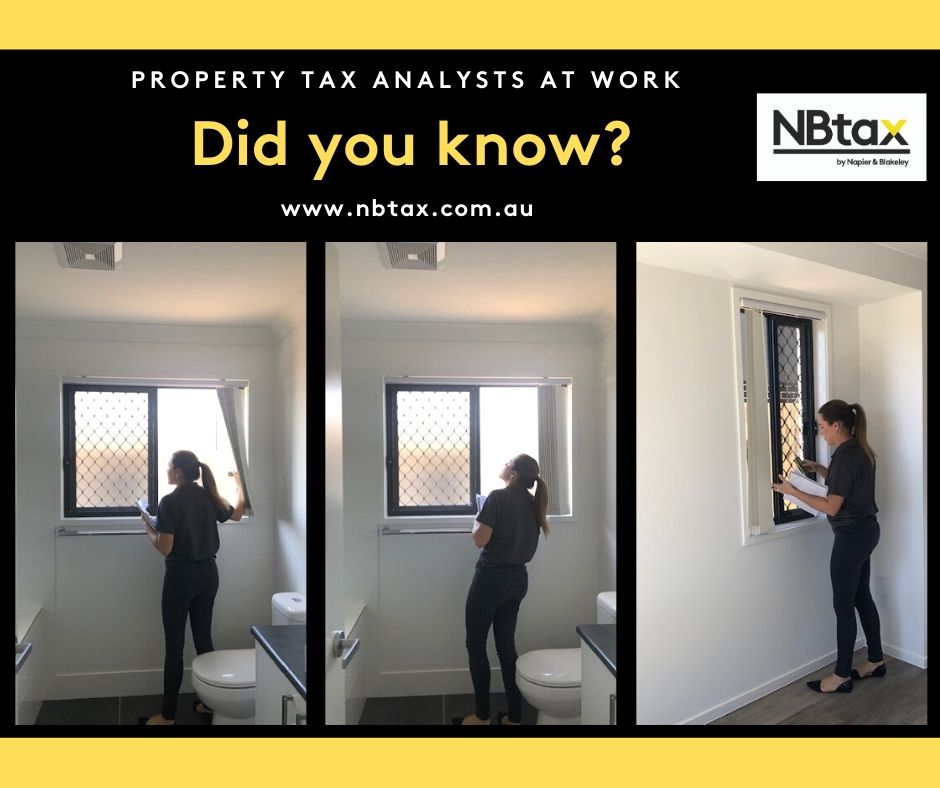
Property Analysts at Work
Ever wonder what is involved in preparing a depreciation report for residential investment properties? Our Property Tax Analyst firstly gather as much information on the property as possible. This includes an exhaustive search of records to determine the construction costs, type, size, and age of the property. Next our Property Analyst will conduct a physical inspection to itemise and evaluate the age, quality and condition of all eligible fittings and fixtures for depreciation, plus any capital works such as major renovations. These include plant and equipment assets such as:
- Carpets, white goods (ovens, refrigerators, washing machines, dryers, hot water systems), air conditioners, security systems, and blinds
- Common shared areas such as pool, car parks, lifts, foyer, gym, BBQ, tennis courts, security, energy systems, and gardens
- Structure renovations external and internal such as new kitchens and bathrooms.
Each property is assessed based on its eligibility in line with the latest property tax legislation. Working closely with our qualified and experienced quantity surveyors, our Property Tax team compiles a comprehensive and compliant depreciation schedule to deliver the best outcomes for our clients. In many cases, our depreciation reports resulted in thousands of dollars of tax benefits for up to 40 years. This is a fantastic return on investment, especially as all depreciation schedules are 100% tax deductible.
Check out the video footage of our Property Tax Analyst Kristy Bauer measuring blinds and reviewing all fittings and fittings for this new complex currently under construction. You will be surprised to learn that up to 20% of the cost for new blinds can be claimed over the first 10 years.
Please contact our team to ensure you receive the maximum amount of depreciation for your investment property.